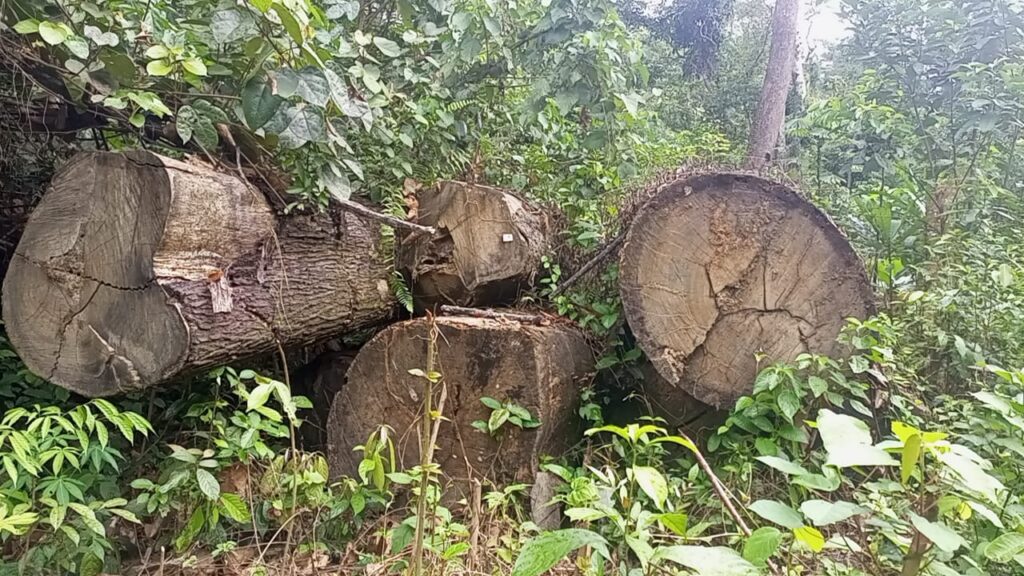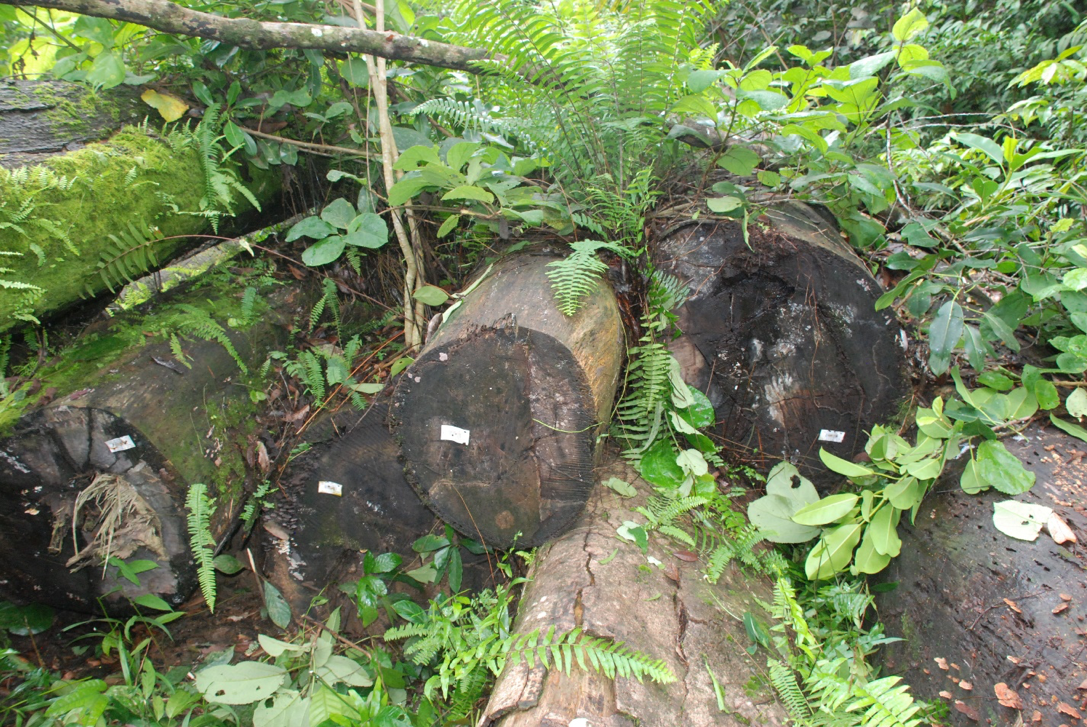Top: Some of the logs Bargor & Bargor/Greenwood abandoned in Bokomu District, Gbarpolu County in August 2022. The DayLight/Gabriel M. Dixon
By Gabriel M. Dixon
BOKOMU, Gbarpolu County – It was a late Thursday evening in July 2019, excitement circled the air in the town of Nyeamah and neighboring villages. Their long-awaited dream of paved roads would soon become a reality years after welcoming a forest concession.
“It was a great thing for us and we were all happy about it,” said John Flomo, a member of the community’s forest leadership.
Bargor & Bargor Enterprise Inc. had struggled with its operations. Now partnering with Greenwood Resource Company, a Liberian-Ivorian firm, brought back life in that part of the Bokomu District. That was, at least, what residents thought.
But the company abandoned over 700 logs in the bush few months after their arrival, dashing the hope of residents.
“They left them in the bush and they got damaged,” Flomo told The DayLight. “Each time they (logging company) do something and we tell the FDA, they (FDA) can delay it. So, we look at it that the company is not for us, it is for the government; that’s [the] government that brought them.”
This reporter visited the logging site of Bargor & Bargor and saw scores of decayed logs. Some were lying along a neglected, grassy road in an open field villager said served as the company’s log yard. We climbed a steep hill into a forest and arrived at another place with huge piles of logs camouflaged by undergrowth of trees and grass. A look around the site shows that no one has been there in recent times before our visit, at least for a year. It was difficult to even take photos. My tour guard cleared around some of the logs to help me take photos. Some of the decayed logs still held on to their tags, indicating that they had been tracked by the Forestry Development Authority (FDA).
Yusuf Konneh and Louis Diomande, the two owners of Greenwood, did not respond to queries for comment on the matter. Efforts to contact Alfred Bargor, the CEO of Bargor & Bargor, did not materialize. His email address has been disabled and his contact number did not ring.

The companies’ executives could face legal actions, as abandoning logs is an offense. The Regulation on Abandoned Logs, Timbers and Timber Products considers woods abandoned when they are left unattended between 15 and 180 working days. Penalties include two times the volume of the logs in question by the legal fees for their stumps. Stumpage fees are calculated based on percentages of the international prices of logs which vary from one class to another. The regulation was formulated to minimize the waste of forest resources and compel legal compliance in the harvesting and shipment of logs.
The FDA has taken no legal action despite being knowledgeable of the matter. “Currently, 716 logs harvested are in the bush spoiling,” read a 2021 letter the community wrote to the agency’s Managing Director Mike Doryen, seen by the DayLight.
The law requires the FDA to investigate a complaint or suspicion of abandonment when notified. Afterward, it should have sought a court order to auction the woods after a period of multiple public notices.
Ruth Varney, the forest ranger responsible for the western region, declined to speak on the matter.
In April earlier this year, FDA asked logging companies to “declare all trees fell in their resources area in LiberTrace consistent with the regulation…” Speaking to The DayLight two months later, Doryen said the agency would have started auctioning abandoned logs countrywide in June 2022. LiberTrace is the system through which the FDA tracks trees from harvest to shipment.
“We… will continue in the northern region and then go down south and western part,” Doryen said at the time. “We are dealing with the issues of abandoned logs in a holistic manner. It is not just TSCs but community forests and forest management contract [areas].”
That has yet to happen.
Henry Gboluma contributed to this story. It was a production of the Community of Forest and Environmental Journalists of Liberia (CoFEJ).




